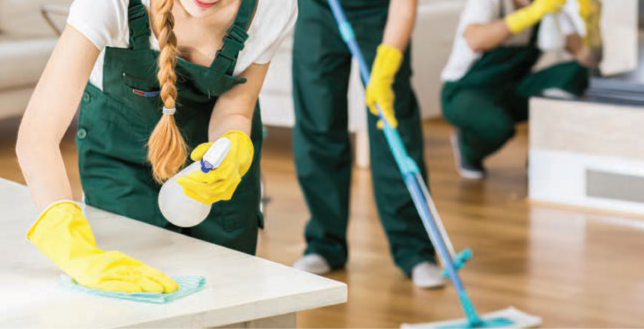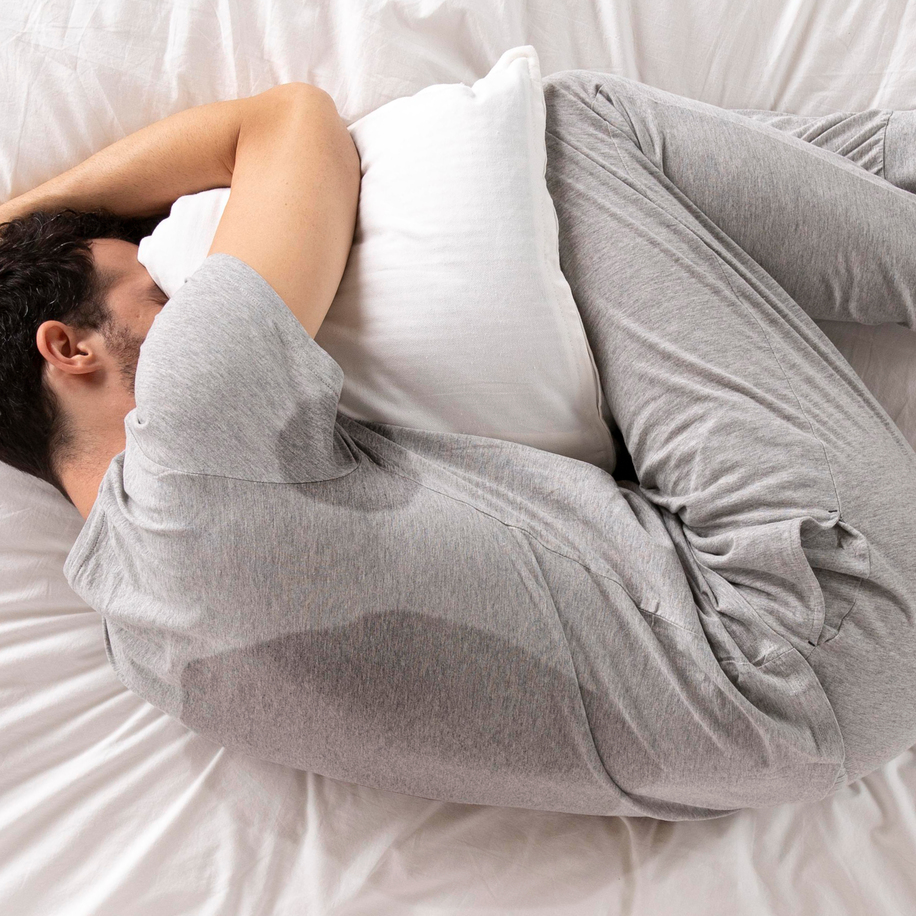Sniffing out Odour Problems at Home
Table of Contents:
How bad odour at home affects your daily life?
They say that a home is a sanctuary – well, not if it smells like sweaty laundry and leaky garbage rolled into one!
Constant discomfort
As unpleasant as the experience is, having an unsavoury tang waft through your home is fairly normal.
But when left unchecked, you risk constantly feeling uncomfortable in your own abode for prolonged periods of time.
It can be embarrassing
While a bad-smelling home isn’t always caused by uncleanliness, it can give the impression that it is.
This would make social gatherings at home difficult – which is a shame since you’d be eager to show off your interior decor to friends and family.
It’s an unnecessary stressor
Imagine coming home from an arduous nine-to-five job only to have your senses be met with an unsettling odour from sources unbeknownst to you.
According to studies, bad smells can trigger a stress response, which is the last thing you need after a long day at work.
5 common bad odours in your home
1. Undisposed garbage
Organic refuse that you toss in the bin can produce odorous compounds such as methanol (smells like rotten cabbage), putrescine (smells like rotten meat), and hydrogen sulphide (smells like rotten eggs).1
Although fixing this issue seems easy enough – just toss out the garbage – it may be a tough task to do it consistently, especially for the busy folk. However, it must be done if you want an odour-free home, so make sure to dispose of your garbage daily.
2. Wet towels
Typically present in spaces where you dry your towels – think your bathroom or your bedroom – you can sometimes pick up funky, sour odours that come from damp fabric.
When not dried properly, wet towels are the perfect breeding ground for bacteria that react with other organic compounds to produce stench.
3. Mould
Speaking of bacteria, mould is a variety of microorganisms that appear on damp surfaces and can potentially be hazardous to your health.
The smell of mould is often described as “musty” or “stale” – and it can typically be in your bathroom, on your carpets, and near a leaky pipe.
The more advanced your mould problem is, the worse the smell gets.
4. Pets
The most obvious ways your pet can stink up the place is through the excrements that they produce.
Exotic pets are believed to be some of the stinkier animals you can keep at home – this is caused by the distinctive pheromones and scents that are common in these creatures.
5. Gas leaks
This one’s annoying as it is dangerous – natural gas does not have odour, but gas companies add scents that specifically smell like rotten eggs to make a gas leak more obvious.
Look for faulty piping or unsealed gas canisters for the source and immediately address the issue safely.
The effects of bad odours on your health

Depending on the source of the odour, you can experience varying side effects, especially with prolonged exposure.
Below are some of the more common side effects associated with bad odour:
Potential health risks
1. Attack on the nervous system
Hydrogen sulphide2 is a foul-smelling gas produced by the breakdown of organic matter by bacteria.
When molecules containing this gas enter your body through your nose, the substance attacks your nervous system, potentially causing death when too much is inhaled.
In smaller quantities, the victim can suffer from nose or throat irritation, headaches, and coughs.
2. Nausea
People who suffer from hyperosmia3 – a term describing an oversensitivity to smells – are susceptible to feeling nauseous when hit with strong scents.
There are several causes of hyperosmia which include:
- Pregnancy
- Migraines
- Neurological conditions
- Autoimmune diseases
3. Gas poisoning4
As spoken before, gas leaks are a common source of bad odour at home – aside from the obvious danger of gas catching fire, there are health risks associated with inhaling natural gas as well.
High levels of exposure can lead to natural gas poisoning. The side effects are:
- Fatigue
- Severe headaches
- Memory problems
- Suffocation
Impact of bad home odour on mental health
Besides the physical aspects of how odour can harm us, it can also trigger mental issues as well.
1. Associative learning5
Studies suggest that humans learn to associate certain smells with objects and experiences – and this process starts at childhood.
While a particular smell may not be a stress trigger to some, others would react more strongly to it.
A person who is not used to being around smokers may find cigarette smoke repulsive – the reaction can then trigger irritable moods.
2. Sick building syndrome
Sick building syndrome – or SBS – is when the inhabitants of a building begin experiencing a range of health and mental complications that seem to link directly to time being spent in the space.
Besides a few physical complications caused by the syndrome, victims can also suffer from mental fatigue.
You may be able to identify if you suffer from SBS when you leave the building – that could be causing the sickness – for a period and have reduced symptoms; when you return to that building, you notice that your sickness does too.6
3. Heightened stress
Unpleasant odours can sometimes be a sign of uncleanliness, or perhaps a mould infestation has occurred – combined with the discomfort that stench generally triggers, our stress levels can intensify just from a whiff.7
Good habits and practices to prevent bad odours

While some odour at home is normal and cannot be completely removed, you should still try to minimise the amount of bad odour that lingers where you eat and sleep.
Identifying the source of odour
The most effective way for removing odour is to deal with it at the source.
If it smells like garbage, check your bins or sink; if you have pets, look around their potty area and you may find the culprit.
If needed, hire professionals to dispose of potentially hazardous problems like mould – dealing with fungus yourself can endanger your health.
Keeping it clean
It’s always a good idea to maintain a thorough house-cleaning regimen to ensure every nook and cranny is spotless.
Damp areas are susceptible to bacteria growth, so ensure these spots are dried out properly every day.
At spots that are hard to see and reach, you can clean out these areas less frequently, but always be thorough when you do make the trip.
Also, dry wet towels and laundry properly either in a sunny balcony or in a dryer to avoid that distinct tang.
Be mindful of your habits
Lastly, you can do yourself a favour by being neat in general – this also means you’ll have to do less clean-ups in the future.
Prepare convenient facilities for you to dispose of trash around the house, or practice putting away laundry in a basket instead of leaving it everywhere.
A little bit goes a long way in keeping your home smelling fresh, so place a few aroma-diffusing products around the house to enhance your own living comfort.
When your house smells great, you’ll be in a better mood too; with less worry of harmful odour sources like gas and mould, you’ll live a healthier life as well.
Use nanoe™ X to freshen up your air and remove odour at the source

nanoe™ X is a technology that generates hydroxyl radical-rich water particles that can reach deep into surfaces like fabric to inhibit odour-causing substances.8
With the technology, strong scents such as cigarette smoke can have its odour-intensity reduced doubly fast.
On top of that, other scents that some find unpleasant such as durian, BBQ, and a clogged sewage can be eliminated with hydroxyl radicals.
Furthermore, nanoe™ X has the same odour-killing effects on everyday scents that stick to surfaces like sweat on fabrics such as clothes, sofas and beds, sebum on our pillows, and putrid leakages on garbage bags.
Keep the air in your home fresh, and more importantly clean with the nanoe™ X technology.
Learn more about nanoe™ X here
1 https://scitechconnect.elsevier.com/wp-content/uploads/2017/08/Aroma-Chemistry-The-Smell-of-Garbage.png
2 https://www.health.ny.gov/environmental/chemicals/hydrogen_sulfide/
3 https://www.webmd.com/brain/what-is-hyperosmia
4 https://www.constellation.com/energy-101/home-natural-gas-safety-tips.html
5 https://www.scientificamerican.com/article/do-scents-affect-peoples/
6 https://www.healthline.com/health/sick-building-syndrome
7 https://www.health.ny.gov/publications/6500/index.htm
8 https://www.panasonic.com/global/hvac/nanoe/all/how-nanoe-works/odour.html
Latest Articles
Click here to contact us about products with nanoe™ X technology









